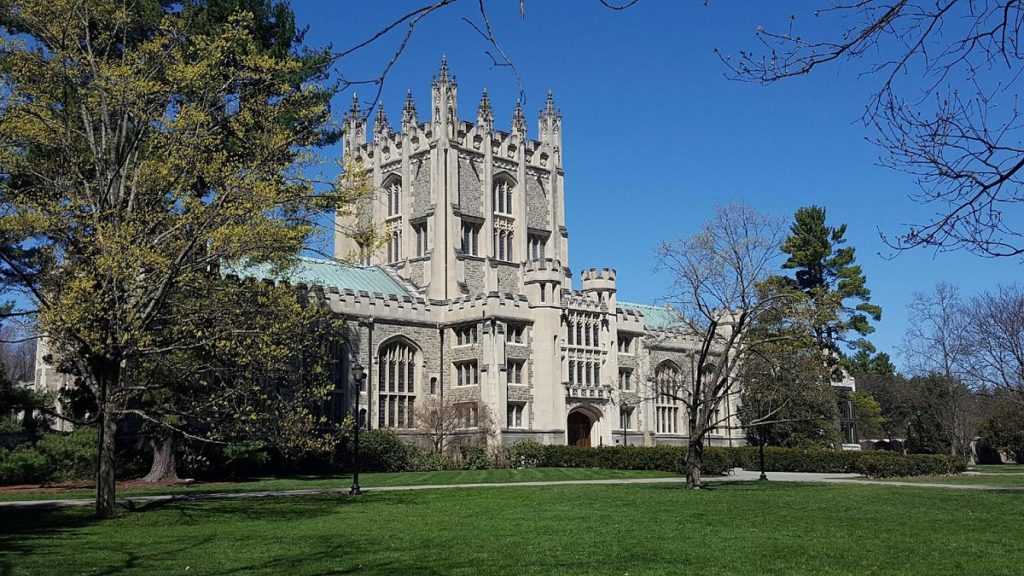Where Do Academics Come From?

The fall is a fascinating time for this academic from a working class background. When I was growing up and graduating from a high school that had something like a 30-35 percent drop out rate between freshmen and senior year, there were like two students who went to a private school outside of the Mormons going to BYU. If you even went to college, a clear minority of students, you were going to one of the publics in Oregon, except for one classmate who went to Wyoming because she liked to ride horses. Our valedictorian (very much not me, who had a 3.3 GPA in high school thanks to the far more important task of watching the dominant early 90s Blazers teams than doing homework) went to Rochester and this was considered a VERY BIG DEAL. When I received a 5 on the AP exam in US history, this was school news because…it had never happened before in the memory of the teachers.
Fast forward thirty years. I am now an academic. I’ve graded AP exams. And I’ve spent my life thinking about class in America. One of the things I’ve learned is how unreflective even liberals are about their privilege, be that race or class. Responses here to talking about the racism of school choices is a classic example of just how broken liberals are when examining their own privileges–even the thought that Maddie and Connor don’t “deserve” the Best Schools (TM) is anathema to many.
Well, this exists on a class scale too. It’s the season where people are dropping their kids off at college. As happens, many of my friends are academics. I’m not working class now in my life in any conceivable way, but of course you don’t lose what you grow up with. Your economic and cultural capital may change, but your memories don’t. And so whereas I came out of a milieu where to go to the state school was a big deal, now everyone I know who is dropping their kids off at college are doing so at….Williams, Vassar, Amherst, Duke, Oberlin, Cornell, Swarthmore, Yale, etc. The idea of these kids even considering a public is not even something to think about. And if they did, it was probably a Michigan or Texas–a public that is truly a nationally recognized school and is really the equal of those privates.
Moreover, it’s telling that faculty who teach at publics all the time say that “our students are just as good as the best schools, or at least the best ones” and “this is absolutely an excellent school and you can get an excellent education here” and then there is no way in hell they are sending their kids where they teach. Maybe these are words that faculty tell themselves to get through their teaching. Maybe they even believe them at the time. But they sure aren’t going to apply them to their own lives.
This is how class divides get perpetuated generation after generation. Wealth begets wealth. PhDs beget PhDs. Speaking of that, there’s a recent study of academics with parents who were academics.
Current tenure-track faculty members are up to 25 more times likely to have a parent with a Ph.D. than the general population, according to a new study in Nature: Human Behavior. This rate nearly doubles at highly selective institutions and has remained stable for 50 years. The study involved combining national-level data on education, income and university rankings with a 2017–2020 survey of 7,204 U.S.-based tenure-track faculty members across eight disciplines in the natural sciences, social sciences, business and the humanities.
“Our results suggest that the professoriate is, and has remained, accessible disproportionately to the socioeconomically privileged, which is likely to deeply shape their scholarship and their reproduction,” lead author Allison C. Morgan, a recent computer science Ph.D. from the University of Colorado at Boulder and current Twitter data scientist, wrote with her colleagues. According to the study, 22 percent of tenure-track professors in the eight fields studied report that at least one of their parents holds a Ph.D., and 4 percent report both parents have Ph.D.s. Some 52 percent report having at least one parent with a master’s degree or Ph.D. In the U.S., on average, fewer than 1 percent of similarly aged adults hold a Ph.D., and just 7 percent hold a graduate degree of any kind.
Other studies have found similar results. Research published earlier this year suggests that economics Ph.D.s, in particular, are increasingly likely to have at least one parent with a graduate degree. (Morgan’s study previously received attention as a preprint.)
What’s even worse, to me any way, is that historians are particularly class replicated:
Seriously, what the shit historians! pic.twitter.com/OoiasYIs51
— Drew McKevitt (@drewmckevitt) August 31, 2022
I really have no idea what to make of that fact.
What I do know is this:
BA: Oregon
MA: Tennessee
PhD: New Mexico
Professor: Rhode Island
I love big public schools. And they ain’t no elites one either (despite what Oregon wants to pretend about itself). It’s my whole life. You can indeed get the best education possible at them. Moreover, you can do so without being surrounded by other rich kids comparing their European summers and winters in Park City, driving around in fancy cars or pretending to be poor while providing their friends with good cocaine.
There’s many paths to education in this nation. And it bothers me that academics, who claim to understand race and class, just completely ignore all of these things when it comes to their children and simply choose to replicate their own privilege.


